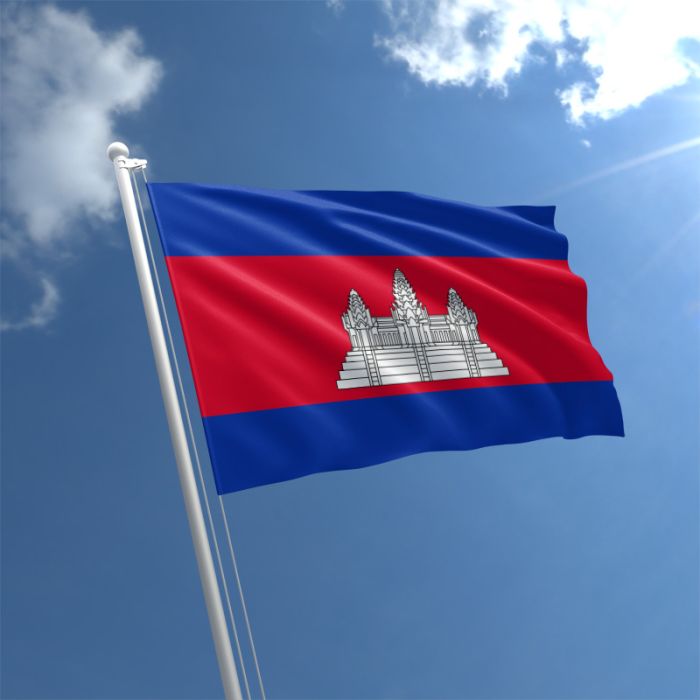In a significant legal development, Cambodia’s Supreme Court has delivered a landmark verdict concerning Chhim Sithar, a notable labor union figure who spearheaded protests against NagaWorld, the country’s largest casino. This ruling has sparked widespread discussions surrounding Sithar’s purported violations, the ramifications of the court’s decision, and its broader implications for labor rights and commercial operations within Cambodia.
No Reprieve for Determined Union Labor Leader
Despite vehement protests and claims of injustice, the Supreme Court upheld Sithar’s two-year prison sentence for alleged incitement to commit a felony. Sithar, the president of the Labor Right Supports Union of Khmer Employees of NagaWorld, led protests against mass layoffs at NagaWorld Casino in Phnom Penh, resulting in her arrest in January 2022. The court’s decision signals a lack of leniency and reinforces the seriousness of the charges against Sithar.
Challenges and Allegations
Sithar’s arrest and subsequent conviction stemmed from her role in organizing protests against NagaWorld’s mass layoffs, which were attributed to financial difficulties exacerbated by the COVID-19 pandemic and the decline in tourism. Despite Sithar’s assertions of illegal layoffs and union-busting tactics by NagaWorld, the court found her actions to be against the law, leading to her imprisonment.
Public Outcry and Continued Protest
The court’s decision has sparked widespread outrage and ongoing protests from Sithar’s supporters and fellow union workers. Many view Sithar as a champion of labor rights and condemn both her imprisonment and the treatment of the case by NagaWorld and Cambodia’s legal system. Despite settlements offered by NagaWorld to some former employees, others remain steadfast in their support for Sithar and her cause.
Legal and Human Rights Implications
Sithar’s case has drawn attention to broader concerns regarding labor rights and human rights in Cambodia. While Sithar is recognized as a human rights defender by the US Department of State, her imprisonment raises questions about the protection of labor activists and the prevalence of corruption within the Cambodian state. The case underscores the challenges faced by individuals advocating for workers’ rights in the face of powerful corporate interests.
NagaWorld’s Role and Business Landscape
NagaWorld, owned by Malaysian billionaire Chen Lip Keong and his family, holds significant influence in Cambodia’s business landscape. The casino’s operations have been central to Cambodia’s tourism and entertainment sector since its establishment in 1994. However, the case involving Sithar has brought scrutiny to NagaWorld’s labor practices and its relationship with the Cambodian government.
Conclusion: The Ruling
The Supreme Court’s ruling on Chhim Sithar’s case reflects the complexities of labor rights, legal proceedings, and corporate influence in Cambodia. Sithar’s imprisonment highlights the challenges faced by labor activists in advocating for workers’ rights in the face of powerful entities. As Cambodia navigates these issues, the case serves as a reminder of the ongoing struggle for justice and accountability in the realm of labor rights and corporate governance.
FAQs About Chhim Sithar’s Supreme Court Ruling
1. Who is Chhim Sithar?
Chhim Sithar is a labor union leader in Cambodia, serving as the president of the Labor Right Supports Union of Khmer Employees of NagaWorld.
2. What was the Supreme Court’s ruling regarding Chhim Sithar?
The Supreme Court upheld Sithar’s two-year prison sentence for alleged incitement to commit a felony related to her role in organizing protests against NagaWorld’s mass layoffs.
3. What were the protests led by Chhim Sithar about?
Sithar organized protests against mass layoffs at NagaWorld Casino in Phnom Penh, alleging illegal layoffs and union-busting tactics by NagaWorld.
4. Why did the Supreme Court find Chhim Sithar guilty?
The court found Sithar’s actions to be against the law, leading to her imprisonment, despite claims of injustice and protests from her supporters.
5. What has been the response to Chhim Sithar’s imprisonment?
There has been widespread outrage and ongoing protests from Sithar’s supporters and fellow union workers, condemning her imprisonment and the treatment of the case by NagaWorld and Cambodia’s legal system.
6. How has Chhim Sithar’s case highlighted broader issues in Cambodia?
Sithar’s case has drawn attention to broader concerns regarding labor rights and human rights in Cambodia, raising questions about the protection of labor activists and the prevalence of corruption within the Cambodian state.
7. What role does NagaWorld play in Cambodia’s business landscape?
NagaWorld, owned by Malaysian billionaire Chen Lip Keong and his family, holds significant influence in Cambodia’s business landscape, particularly in the tourism and entertainment sector.
8. How has Chhim Sithar’s imprisonment impacted the labor rights movement in Cambodia?
Sithar’s imprisonment underscores the challenges faced by labor activists in advocating for workers’ rights in the face of powerful entities like NagaWorld, highlighting the ongoing struggle for justice and accountability in Cambodia.
9. What recognition has Chhim Sithar received for her activism?
Chhim Sithar is the recipient of the US Department of State Human Rights Defender Award, recognizing her efforts in advocating for labor rights in Cambodia.
10. What is the significance of Chhim Sithar’s case for the future of labor rights in Cambodia?
Sithar’s case serves as a reminder of the ongoing challenges and the need for continued efforts to protect labor rights and hold businesses and governments accountable for their actions in Cambodia.


















